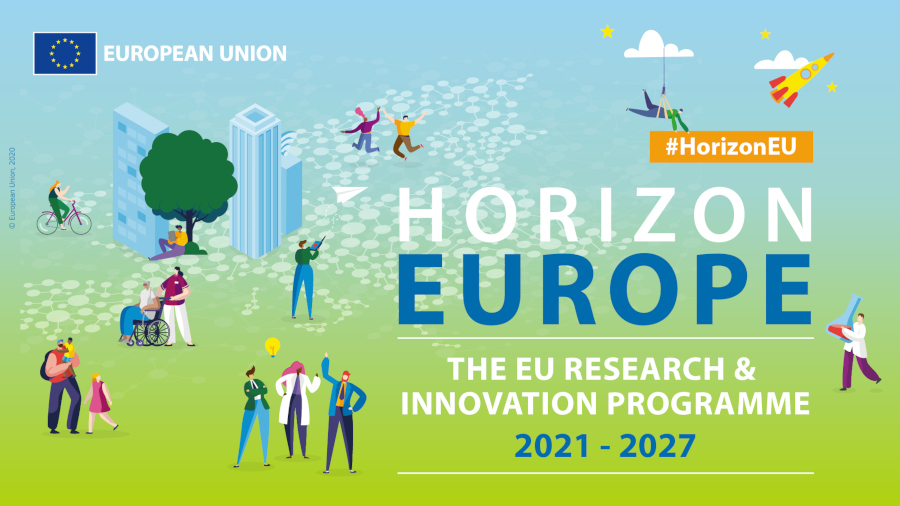The UAB involved in seven Horizon Europe projects of the Culture, creativity and inclusive society cluster
The UAB has received funding for seven projects under the Horizon Europe programme, within the Culture, creativity and inclusive society cluster, aimed at strengthening Europe’s democratic values.

The “Cluster 2: Culture, creativity and inclusive society” research funding opportunity offered by the Horizon Europe programme will be providing a total of 20,642,575 euros to seven research projects with UAB involvement, one of which led by the UAB. Of this amount, 2,053,960 euros will go directly to the funding of research conducted at the UAB.
The goal of offering funding for Cluster 2 projects is to strengthen the democratic values of Europe, including the state of law and fundamental rights, the protection of our cultural heritage and the promotion of socio-economical transformations contributing to inclusion and growth. The funding encourages conducting projects in democracy and governance, cultural heritage, and social and economic transformations.
The following projects have been awarded funding:
SWINS (Sustainable Wellbeing through Investment in Social Services) develops tools to assess the economic and social returns of investments in social services over the life course. It explores alternative policy scenarios to enhance human capabilities, driving income, employment, and growth. SWINS supports the EU’s sustainable transition by integrating interdisciplinary research into institutional frameworks, promoting a rights-based approach to rethinking social services. The project is conducted by a consortium led by Margarita León, UAB lecturer in the Department of Political Science and Public Law and researcher at the IGOP-UAB.
ALFIE (Assessment of Learning technologies and Frameworks for Intelligent and Ethical AI) will create an ecosystem that combines advanced AI technology with ethical standards, ensuring that the resulting AI systems are not only high-performing but also fair, transparent, and free from bias. The project focuses on building two key components: EthiTech Dialogue Hub (ETD-Hub), a platform for dialogue and collaboration where AI experts, policymakers, legal professionals, and citizens can discuss and shape the ethical and legal aspects of AI; and AutoML, a platform designed to allow users to easily create machine-learning models. Forming part of the project is the TransMedia Catalunya research group, led by Pilar Orero, lecturer in the Department of Translation, Interpreting and East Asian Studies.
LINEup (Longitudinal data for INequalities in Education) aims to identify the factors that ensure inclusive and quality education for all students. The project focuses on the analysis of longitudinal data on the academic performance and the development of basic skills of students aged 6-18 years in several European countries. The UAB team, together with other partners, will lead qualitative research in selected schools. The project focuses on how educational inequalities affect students' academic and personal progress over time. The UAB team, led by Department of Sociology lecturer Rafael Merino, researcher in the Research Group on Education and Work (GRET), will be in charge of the qualitative phase of the project in Catalonia. This stage will include interviews and focus groups with students and teachers in nine Catalan schools.
NEXT-UP (Navigating the Next Normal: Innovative Approaches to Enhancing Youth’s Education-Employment Transitions in PostCOVID-19 Europe) addresses COVID-19's long-term impacts on youth transitions to employment, focusing on inequalities and labour market shifts in Europe. It fosters inclusive, evidence-based policies and social innovation by engaging policymakers, educators, employers, and youth organisations. The project aims to build resilient systems, promote equity, and support disadvantaged groups, addressing youth employment challenges in the post-pandemic era. The project was launched by Lara Maestripieri, researcher in the UAB Department of Political Science and Public Law and at IGOP-UAB.
TaCT-FoRSED (Tackling Conspiracy theories by fostering resilience and self-efficacy of democracy) is framed by the growing erosion of trust in democratic institutions and the parallel increase in the belief in conspiracy theories. These beliefs undermine democratic procedures as well as citizen participation and generate harmful political identities. The project aims to fill a scientific gap regarding the interrelationship between democracy, identity formation and conspiracy theories. Lecturers Marc Guinjoan and Carol Galais from the Department of Political Science and Public Law will work on the generation of opinion data and empirical analyses. The project will conduct an online survey in 15 countries and collect systematic data on conspiracies. The project will combine the use of observational and experimental methods.
BENEFITS (Building economic, needs-based & environmental evaluation frameworks for inclusive transformation of social services in Europe) will develop a holistic evaluation framework to measure the social, economic and environmental impact of social services, beyond GDP. The objective is to provide solid evidence on the social and economic returns of these services. BENEFITS will implement a multi-country research plan to identify and visualise the added value of social services, as well as the factors that enable the scalability of their positive effects. The Social Services Policy Observatory will be developed to document and co-design policies in the EU, and build a Policy Evaluation Kit with recommendations to improve services. On behalf of the UAB, the GEDIME, Group of Studies on Migration and Ethnic Minorities, will participate and will be led by lecturer Teresa Sordé of the Department of Sociology, together with lecturers Olga Serradell and Ainhoa Flecha.
ALPHABETICA (Activating Learning Paths: Holistic Arts-Based Education and Training for Inclusion and Cultural Awareness) adopts a multi-method and participatory approach for the study of the impact of arts-based education on the holistic development of children/young people, while also focusing on the transformative effect of their active participation and empowerment in their learning process for lifelong learning and addressing future challenges. The project focuses on finding transferable and replicable solutions that can be used in various socio-economic-cultural contexts, and that ensure that all children can access arts-based education and assessing if, how and where skills developed through arts-based education can be transferred and stimulate lifelong learning. UAB involvement is led by Claudia Vallejo, lecturer in the Department of Language and Literature Education and Social Science Education.